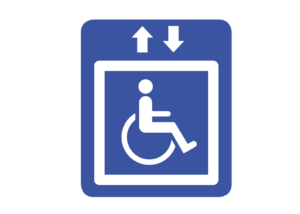THE EXTRAJUDICIAL PAYMENT AGREEMENT TO KEEP THE COMPANY

Written by Josep Conesa
Labour and bankruptcy lawyer
As a result of the COV-19 health alert, we have come across numerous companies that have been forced to close the doors of their businesses, cease their activity, initiate ERTE procedures, etc. This situation has provoked drastic decreases in income, and more often than not these are not accompanied with a proportional decrease in expenses. The immediate consequence of all this is that many companies start to be unable to keep up with their regular payments.
This means that they are in what is legally called "insolvency" state, which is contemplated in the Bankruptcy Law and which can amount to: "current insolvency" (meaning that today, at this moment, the company is unable to keep up with its financial obligations) or "imminent insolvency" (meaning that the company is currently keeping up with its financial obligations, but it can foresee that it will not be able to meet its obligations regularly and punctually).
In these cases, the bankruptcy law obliges the debtor who is in a state of insolvency to request the bankruptcy of creditors in the Court. This is a long procedure which generates additional expenses for the company (and often the company does not have enough liquidity to manage the debts). The bankruptcy proceeding can lead to personal liabilities for the company director if the bankruptcy is declared as culpable and, in most cases, the process ends with the liquidation and extinction of the company.
However, the Bankruptcy Law, by means of the incorporation of Article 5 bis of the Bankruptcy Law and the articles of Law 25/2015 on second chance, introduced an escape route, a possible solution for many companies in debt, in the form of the extrajudicial payment agreement (arts 231 to 242 LC).
This route allows the debtor, in an out-of-court venue, to negotiate the debt for three months and to present a proposed payment plan to the creditors. The objective is to achieve a reduction of the debt and to delay its payment (remove and wait). As such, it is possible to save time and negotiate the debts to try to get the company out of its position of insolvency, so that the company can continue its activity, without having to go to court for a bankruptcy.
If, on vote, the necessary majority is achieved, the agreement will be imposed even on dissenting or non-voting creditors.
Another important advantage is that, unlike in the case of bankruptcy, during the negotiation the debtor's freedom to act is not impeded, there is no third party external to the company (Insolvency Administrator) who controls all of the company's activity, bank accounts and daily management. In addition, the company retains its administrative body. However, if it wishes, it is free to cease their positions and appoint new administrators or managers.
WHO CAN APPLY FOR PRE-bankruptcy?
The out-of-court settlement of payments can be requested both by NATURAL persons and by COMPANIES, provided that they are in a state of insolvency, and the initial estimate of the liability does not exceed five million euros.
In the event that the debtors are businessmen or registrable entities, the appointment of a bankruptcy mediator will be requested from the Commercial Registry or the Official Chambers of Commerce. If the debtor is a natural person, it will be requested from the Notary of the debtor's place of residence. In both cases, the opening of the negotiations is to be communicated to the court which is responsible for the declaration of insolvency.
Consequently, a period of three months of negotiation with the creditors opens. The debtor can negotiate with all of the creditors except for the Public Administration, because all public law debts (Treasury, Social Security, etc) cannot be affected by the out-of-court agreement.
During those months of negotiation, new judicial executions of assets or rights cannot be initiated if they attempt against assets or goods necessary for the continuity of the debtor's professional or business activity. In addition, those proceedings that are already in process will be suspended (except the procedures that are intended to enforce public law debts and creditors of debts with a real guarantee).
If the proposal is accepted, it will be filed as a public deed. If it is not (after three months from the communication to the court and within the following business month) and the debtor continues to be insolvent, the bankruptcy mediator will request that the judge declares bankruptcy (consecutive bankruptcy article 242 LC). The suspension of the deadlines provided for in article 43 of RD 430/2020 and article 11 RD 16/2020 must be taken into account.
In the case of natural persons, if, in the end, no agreement is reached and the situation ends up in bankruptcy, having entered into or, at least, attempted to enter into an out-of-court payment agreement is one of the requirements for the debtor to be able to request the benefit of the exoneration of unsatisfied liabilities (article 178 bis).
Therefore, both in the case of companies and individuals, the out-of-court settlement can put an end to the insolvency situation and avoid the judicial proceeding of bankruptcy. Therefore, it is advisable to take up that opportunity sooner rather than later and adopt the timely decision to negotiate an out-of-court settlement of payments with the creditors, hopefully allowing the company to be saved.
WHEN SHOULD I APPLY FOR A BANKRUPtCY PROCEEDING?
Answer: it is possible whenever there is a risk of bankruptcy, and this will occur in the following three cases:- You generally cannot meet your financial obligations.
- There are seizures being carried out that generally affect your assets.
- Three months of generalised defaulting in the payment of:
- Tax obligations
- Social security contributions
- Wages and workers' compensation
WHAT DO I NEED TO do to apply for A PRE-bankruptcy?
The procedure should start with the communication to the Court of the start of negotiations. As such, the following elements will be necessary:
- A refinancing Agreement (article 71 bis.1 and fourth additional provision)
- A proposal for a bankruptcy agreement (in the terms provided by the bankruptcy law)
- An Extrajudicial Payment Agreement (article 231 ss LC).
- A Notary or the Commercial Registry is requested to appoint a bankruptcy mediator
- Acceptance of the position by the mediator
- The Commercial Registry or public Notary shall communicate, ex officio, the opening of the negotiations to the Court responsible for the declaration of insolvency.
WHAT are the requirements TO file for bankruptcy?
In the event of the insolvency of the debtor, insolvency will be declared.
IF THE APPLICATION IS SUBMITTED BY THE DEBTOR, it must be based on its state of insolvency, which may be:
- CURRENT when the debtor cannot regularly meet his/her pending financial obligations.
- IMMINENT when the debtor foresees that he/she will not be able to regularly and punctually meet his/her financial obligations.
QUESTIONS? DON'T HESITATE TO GET IN TOUCH:





